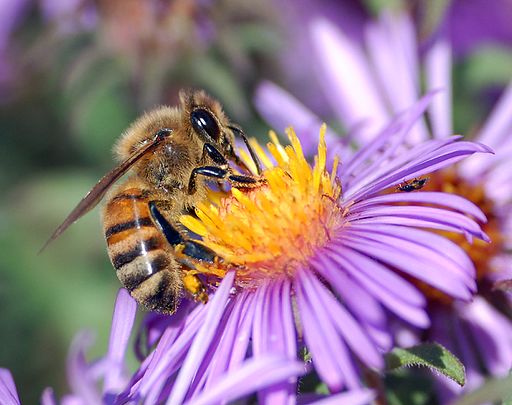
Where Would We Be Without Bees?
Bees And Us
It may be easy to assume that the main job of the cheerful bees that we see buzzing around our gardens or local parks in the summertime is to produce the delicious honey that we enjoy on our toast at breakfast time. But this is far from the most important role of bees in our lives.
Bees have lived on Earth for millions of years and they are one of the most essential and effective natural pollinators (Pollination involves the fertilisation of plants, allowing them to produce seeds, so more plants can grow). Bees visit large numbers of plants, as they bring food from the plants back to their colonies, meaning that they transfer more pollen between more plants than other insect pollinators do. The pollination of these plants is vital for many reasons.
Without bees performing their role as hardworking pollinators, many crops, as well as popular fruit and vegetables such as cucumbers, apples and tomatoes, would no longer be available to us, as they come from plants that rely on pollination by bees. Lots of crops that are fed to the animals that we eat are also pollinated by bees: without bees, some types of meat would also therefore disappear from our supermarket shelves. This would have significant consequences for our diet and for the range of food available to us.
Existential Threat
The value and the importance of bees to our lives is clear, but, worryingly, bees are under threat. The number of bees is decreasing worldwide, with some bee species dying out altogether. The recent significant reduction in the bee population has been caused not only by the use of pesticides on the crops that bees pollinate – these pesticides are toxic to bees – but also by the disappearance, due to increased urbanisation, of the natural wildflower meadows in which many types of bees like to live.
How To Help
Fortunately, there are several easy ways to help ensure that the local bee population thrives. As well as avoiding using weedkillers in our gardens, less intensive gardening is also crucial: allowing wildflowers to grow freely creates a perfect home for bees, and typical lawn weeds such as dandelions provide an essential source of food for bees.
So, next time you spot a bee buzzing happily around your garden, or you tuck into some natural yoghurt drizzled with sticky honey, take a moment to remember that we have a lot to thank bees for. And next time you don your gardening gloves, remember before you start digging that the local bee population will in turn thank you for a wilder, less well–maintained garden.